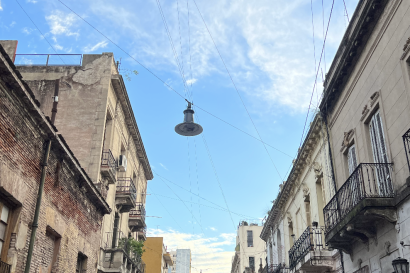The Spanish you have learned in your high school and university classrooms is invariably different than the Spanish you will encounter abroad. Before coming to Argentina, I heard a lot about the thick Argentine accent, which is famous for pronouncing its double l’s differently than every other Spanish-speaking country in the world. While this is true, and while Argentines do tend to speak incredibly quickly, it is not too hard to adjust to. But it does help to know a few colloquial phrases before you go abroad.
Phrases to know in Argentina:
- The vos form: Not exactly a phrase, but Argentines uses the vos form, which is definitely something you have not learned in Spanish class. It’s different from the vosotros of Spain, and is used in place the tú form. To conjugate a verb in vos form, take the infinitive, drop the r, add an accent above the last syllable, and then an s—this will give you tenés, querés, venís. Locals will understand you if you use tú rather than vos, but you’re more likely to stand out.
- Boliche: In other Latin American countries, a club is often referred to simply as a club. But here in Argentine, they’re referred to as boliches.
- Che boludo: This is a term of endearment used between friends. Boludo on its own means moron or idiot, so be careful how you use it.
- Previa: The castellano equivalent of pregame! Its involves friends coming together before a night out, to have a few drinks and spend time together.
- Frutilla: In Spanish class you probably learned that strawberry in Spanish is fresa, but in Argentina, they say frutilla.
- Palta: Again, in Spanish class you probably learned that the word for avocado is aguacate. They don’t say that here.
- Pancetta: Argentine for bacon.
- Choclo: The word for corn is choclo, not maíz, like you have always been told.
- Quilombo: A big mess!
- Chamuyero: A smooth-talker or a player.
- Buena onda: This essentially translates to good vibes. It’s something you’ll hear a lot, to describes bars, restaurants, and even people.

Lena Novins-Montague
<p>Hi! My name is Lena, and I'm a junior at Tufts University. I study English and Political Science, and I hope to be a journalist after college. In my free time, I love to run, read and write poetry, and watch movies.</p>








